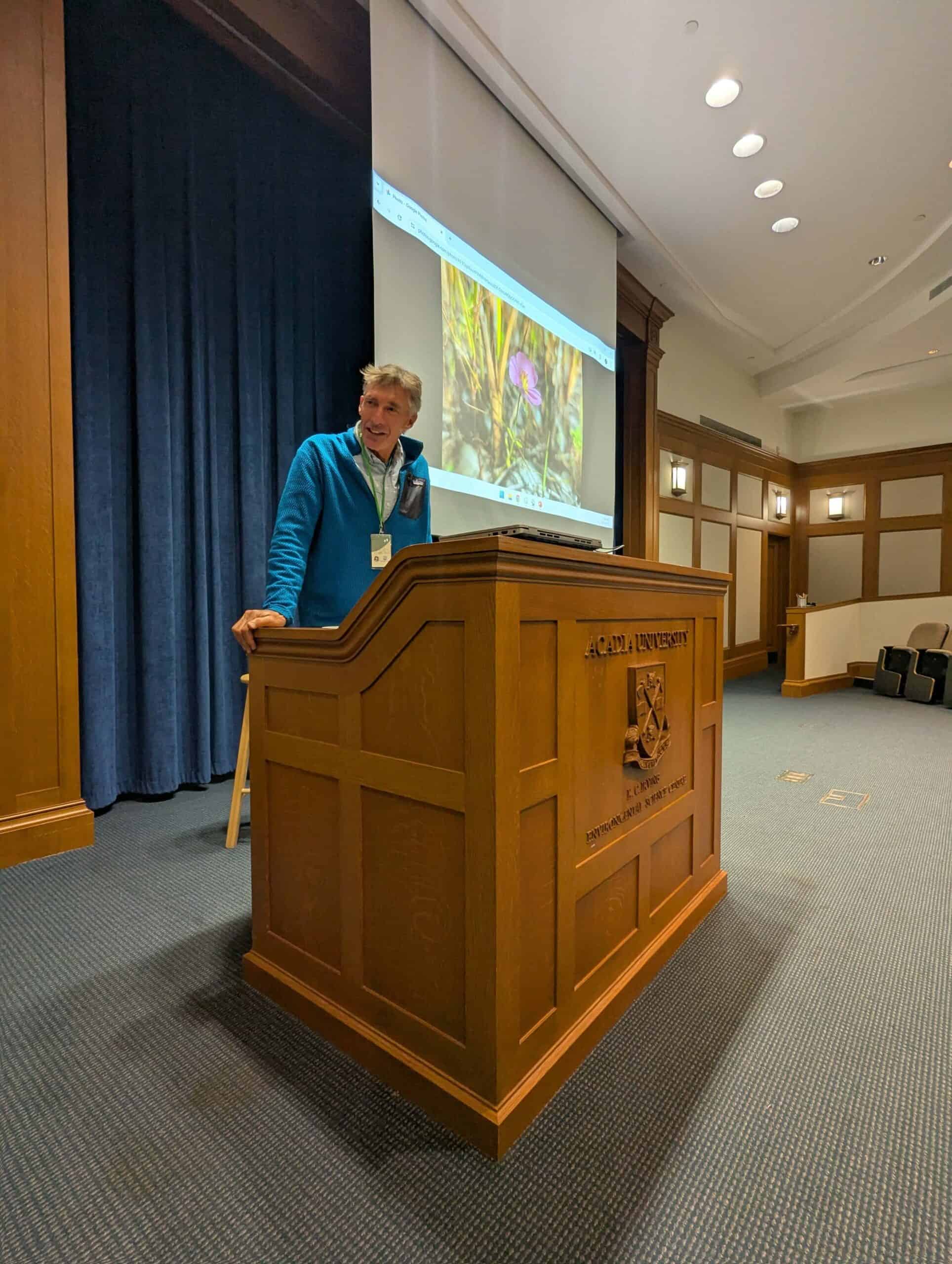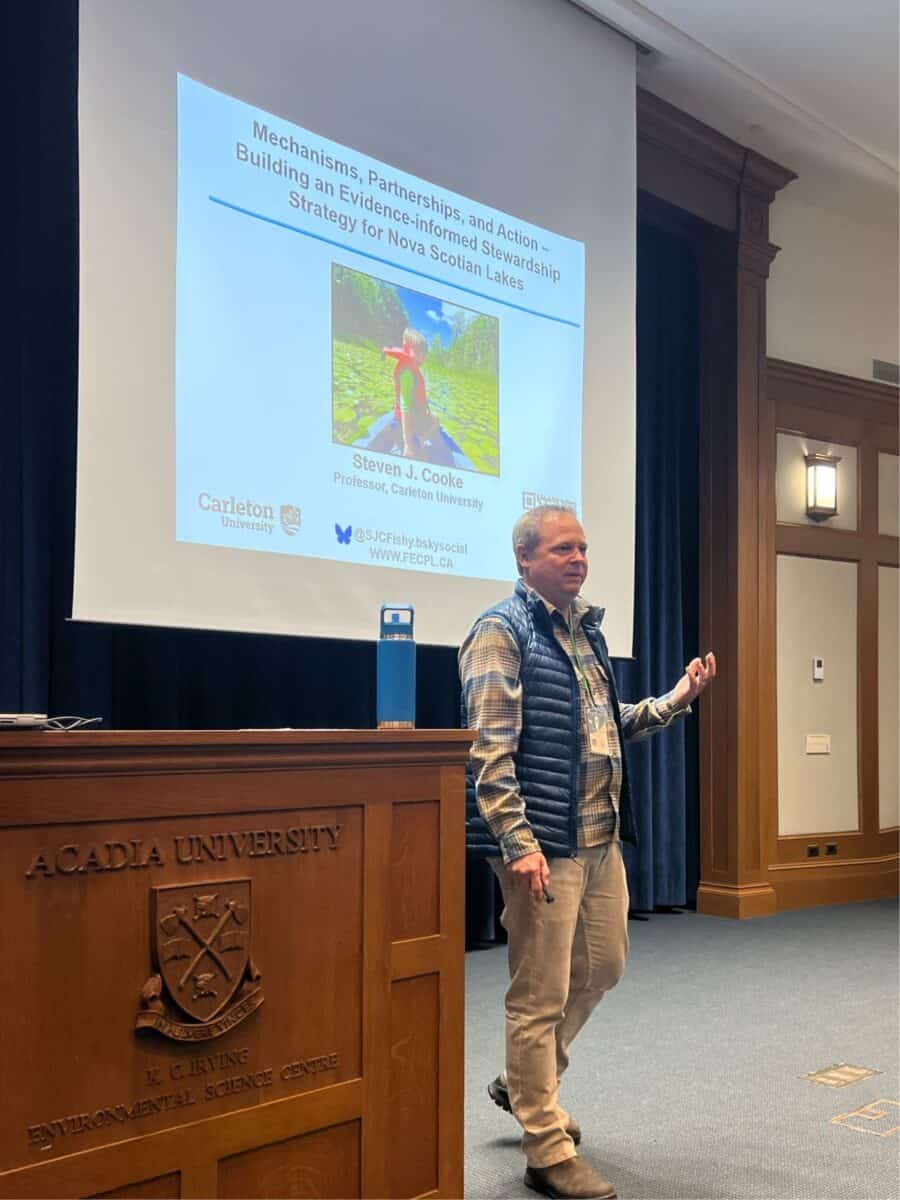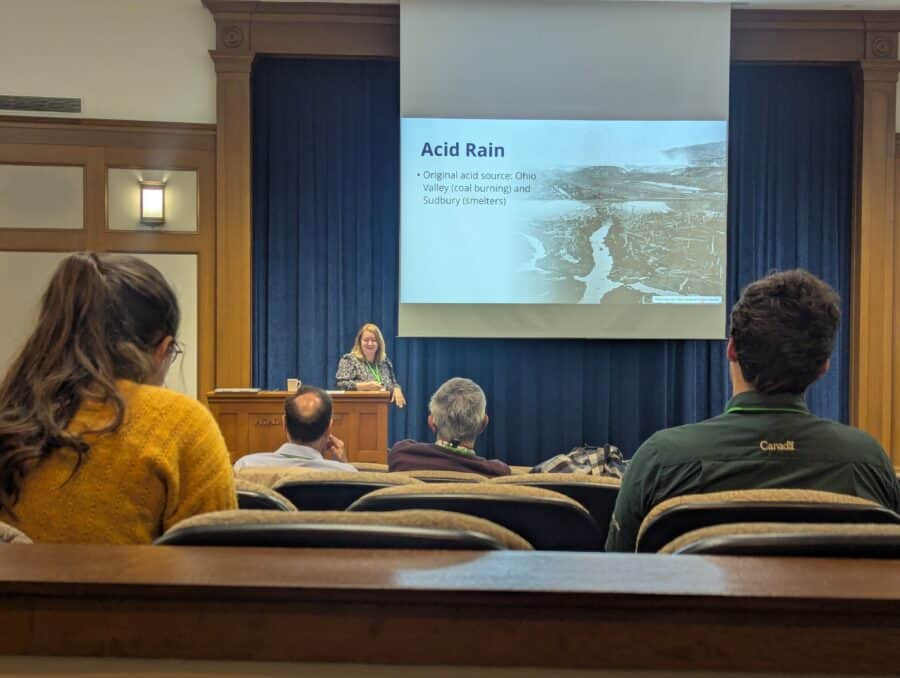
October 15th saw a group of scientists and practitioners come together to discuss the health of Nova Scotia’s Lakes, co-hosted by Dr. Nick Hill of the Southwest Nova Biosphere and the K.C. Irving Environmental Science Centre. The event focused on the lakes of the province’s southwestern region, where growing development and recreational use are increasing pressure on these ecologically vital waters.
Canada is a nation rich in freshwater, and Nova Scotia’s landscape is dotted with thousands of lakes. These ecosystems are central to the province’s biodiversity, recreation, and drinking water supply—but they are also vulnerable. “There is enormous potential to do effective, collaborative science to protect these lakes as valuable spaces for recreation, biodiversity, and the ecosystem services they provide,” said Dr. Ian Spooner, past Research Director at the K.C. Irving Centre, and a speaker at the workshop. “We were excited by the common ground found at this meeting and the new leads for research and collaboration that emerged.”
The workshop opened with Elder Dr. Lorraine Whitman, who grounded the day in the Mi’kmaq Seven Sacred Teachings, emphasizing respect and reciprocity in water stewardship.
Plenary speakers Dr. Steven Cooke of Carleton University and Dr. Andrea Kirkwood of Ontario Tech University brought insights from Ontario’s intensively developed “cottage country”. The two discussed how local-scale research and grassroots initiatives can drive long-term change. Dr. Cooke is a Canada Research Professor and founding Director of the Canadian Centre for Evidence-Based Conservation. Dr. Kirkwood is a Professor in the Biological Science and Applied Bioscience programs at Ontario Tech University and has held a Research Excellence Chair in Urban Water since 2023.
Moderated by Dr. Graham Daborn, emeritus professor at Acadia University, the discussion explored scientific and policy challenges facing Nova Scotia’s lake systems. Participants emphasized the need for baseline data, long-term thinking, and stronger regulatory frameworks. The discussion focused on need for collaboration and how to fold in recreational lake users as ensuring lake health is a shared value.
Central to the day’s discussions were the priority threats to lake health and biodiversity. Participants identified cottage density, shoreline development, riparian wetland loss, climate change, blue-green algal blooms, and inconsistent monitoring and regulation as the key issues.
The mission of the Lake Health Workshop was to update, understand, and communicate the critical stressors affecting Nova Scotia’s lake ecosystems and biodiversity, with a focus on southwest Nova Scotia. Moving forward organizers hope to develop a white paper for municipal governments, and continue to build a robust knowledge base that supports both policy and community-level decision-making.
Representatives from the following organizations were in attendance: Acadia University, Saint Mary’s University, St. Francis Xavier University, Cape Breton Regional Municipality, Bluenose Coastal Action Foundation, Mersey Tobeatic Research Institute, CLIMAtlanitc, Nova Scotia Salmon Federation, Wildcat First Nation, Parks Canada, Clean Annapolis River Foundation, and Atlantic Water Network. Many thanks to these groups and others that have been engaged, and will continue to be involved, as work on lake health in Nova Scotia moves forward.
Please click here to view the workshop brochure with talk summaries.


Dr. Steven Cooke and Dr. Andrea Kirkwood in their plenary talks. Photo credit: A Belliveau, A Kirkwood.


 Acadia University
Acadia University